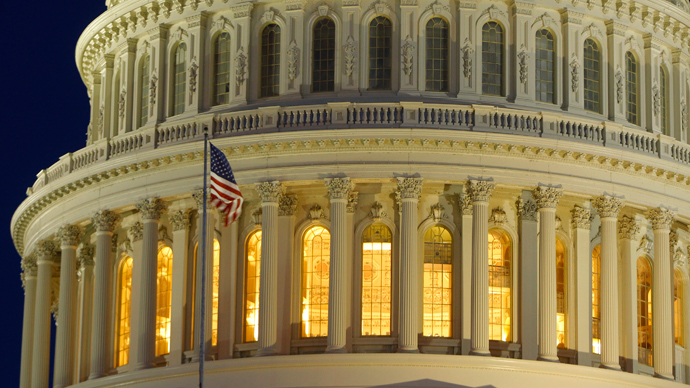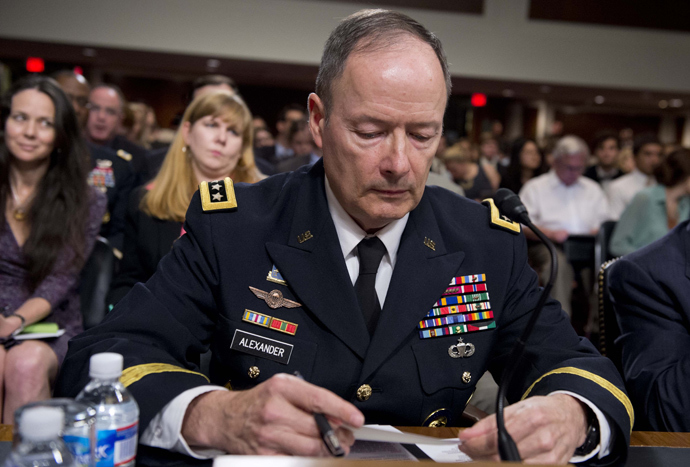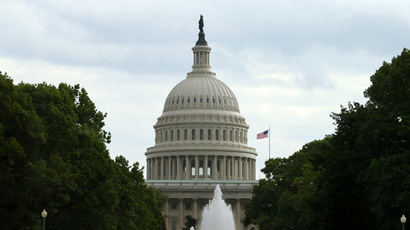Just this side of perjury: Congressmen irritated by intelligence smokescreens

Some US Congressmen say getting straight answers from the intelligence community on issues it does not wish to discuss – such as surveillance of Americans -- is extremely difficult without knowledge of the community’s internal workings.
Intelligence officials have scheduled several closed briefings with lawmakers this week amid heightened media interest in data collection by the NSA and FBI. Former NSA contractor Edward Snowden has leaked details of alleged widespread domestic surveillance to the press.
Officials from the DoJ, FBI, NSA, and office of the Director of National Intelligence discussed the leak with members of the house on Tuesday, though many lawmakers were unsatisfied with the discussions. A confidential briefing to the Senate is scheduled for Thursday.
Some officials have been on the defensive amid the public furor over the allegations, citing the security benefits of surveillance. NSA Director and US Cyber Command head General Keith Alexander said during a hearing on cyber security in the Senate that it has “helped thwart dozens of terrorist events.
"When I say dozens, what I'm talking about here is that these authorities complement each other in helping us identify different terrorist actions and help disrupt them," he added.
As officials offer clarity on the scope of PRISM and other surveillance programs, and deal with public outrage over its revelations, they insist that the public had oversight on the controversial practice via legislators.
The Obama administration has said that members of Congress were filled in on the programs 22 times in the 14 months to December last year. Those sessions included hearings, meetings with individual members, and meetings of the judiciary and intelligence committees.

However, some of representatives are saying that the intelligence community is complicating their task. "One of the most important responsibilities a senator has is oversight of the intelligence community. This job cannot be done responsibly if senators aren't getting straight answers to direct questions," said Senator Ron Wyden as cited by Reuters.
Wyden was among the senators who questioned National Intelligence Director James Clapper during a hearing in March. When asked whether the government had collected data on millions of US citizens, he answered “not wittingly.”
After the exposure of PRISM, Clapper referred to the question as a “when are you going to start - stop beating your wife" kind of question, adding that his negative answer was the "least untruthful" he could give at the time.
Evasive tactics, of which this episode could be said to be an example, are frowned upon by some legislators.
"Sometimes these briefings are a game of 20 questions. If you don't ask exactly the right question, you don't get the answer," former Representative Jane Harman said when describing the situation.
Things are complicated by the secretive nature of such meetings, which exclude experts advising lawmakers from participating. Without the help of tech-savvy staffers, many lawmakers are simply not capable of asking the right questions.
Intelligence officials appear to have had second thoughts before disclosing details of their work to Congress.
"In the aftermath of 9/11, I got the impression that they were telling us as little as they could without perjuring themselves," said former senator Bob Graham, who chaired the Senate intelligence committee from 2001-03.
Edward Snowden, the whistleblower behind the scandal, remains in Hong Kong. In his latest interview with the local newspaper The South China Morning Post, he reiterated that he plans to expose more US intelligence secrets.
In the interview, Snowden accused the US of using its cyber capabilities to hack targets in China, and particularly Hong Kong, as well as using “bullying” to force his extradition back to the US. He added that he trusts the autonomous city’s authorities to “do the right thing.”














